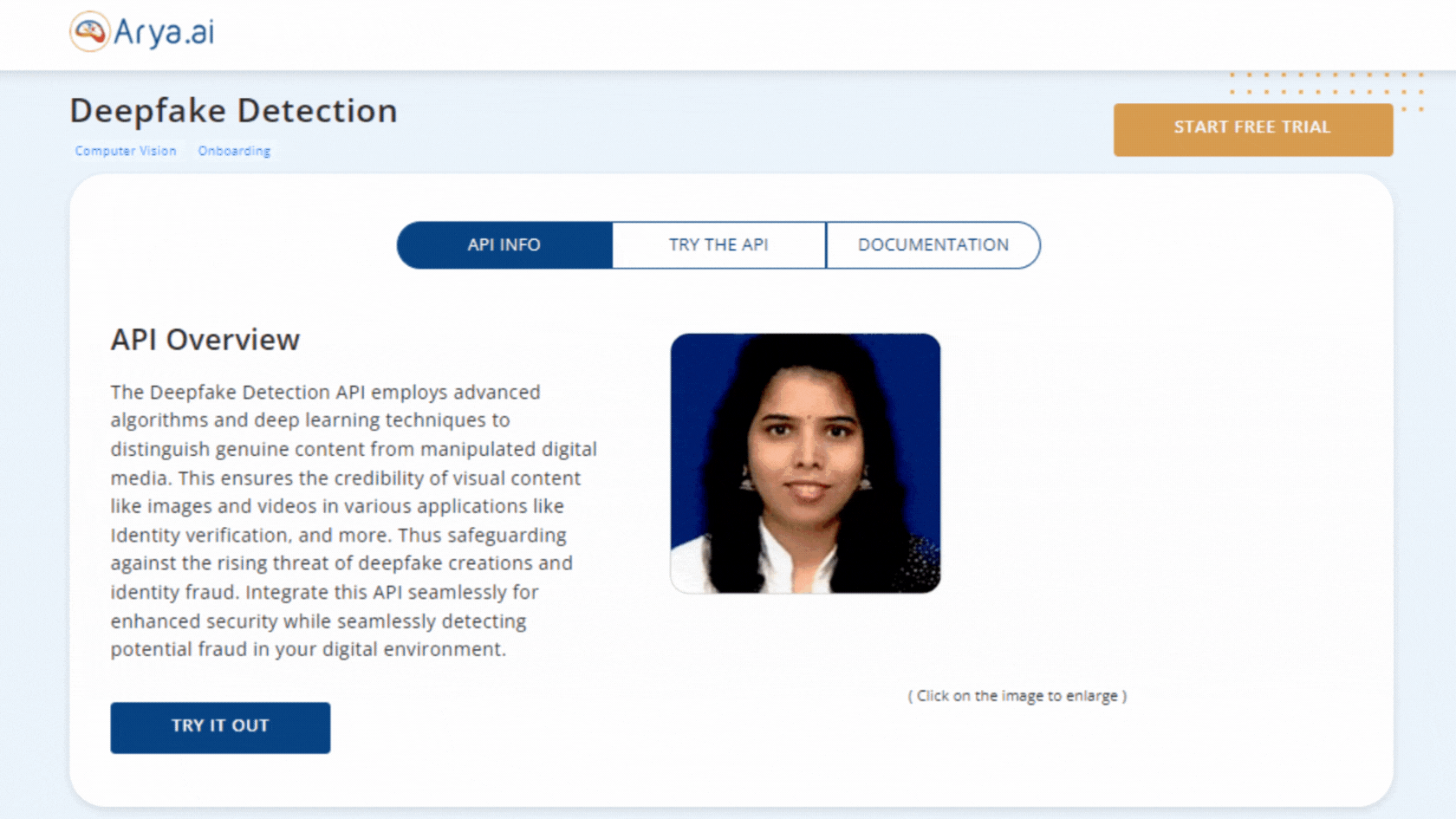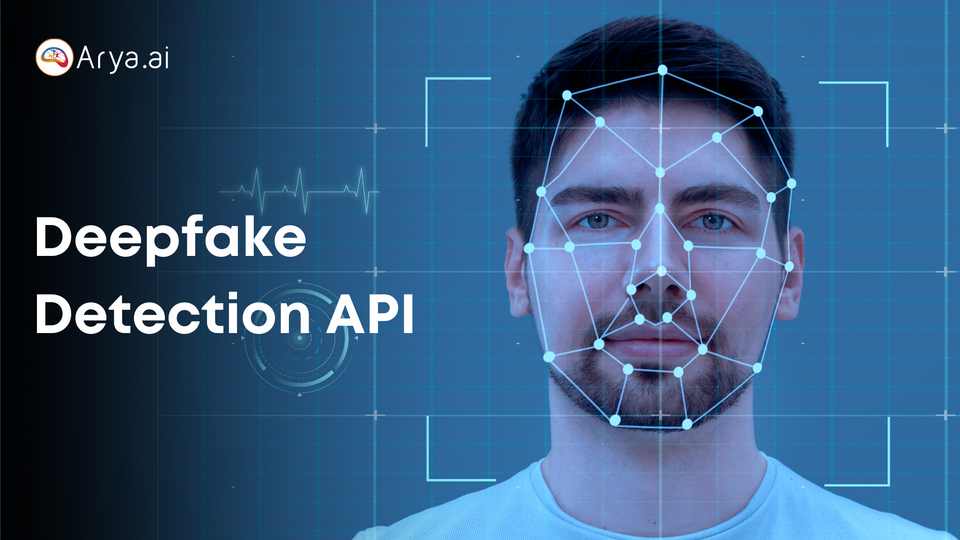Deepfakes employ a type of artificial intelligence known as deep learning to craft realistic-looking images or videos of fictional events. This can involve generating entirely fake yet convincing photos or videos, utilizing voice skins, or even creating voice clones of well-known personalities. The rise of deepfakes presents a significant challenge across various industries. Fortunately, with the implementation of deepfake detection, businesses can swiftly identify fraudulent content, shielding themselves from potential harm to their brand reputation, customer information, and financial well-being.
In this blog, we’ll help you understand what deepfakes are, the dangers of deepfakes, and how Arya’s deepfake detection technology can help you identify fraud at scale.
The Rise of Deepfakes
Statistics paint a disturbing picture! According to a 2023 report by Deepfake Detection Lab, deepfakes involving impersonation have increased by 300% since 2020. A survey by Local Circles in India indicated 30% of respondents believe that 25% of online videos they watch are later found to be fake.
These deepfakes manifest in various forms, including:
- Image Deepfakes: Faces are seamlessly swapped onto existing bodies, creating believable scenarios of individuals never spoken to, done, or been somewhere.
- Video Deepfakes: Speech synthesis and lip-syncing technologies manipulate existing videos, making it appear as if someone said or did something they never did.
- Audio Deepfakes: Synthetic voices mimic real individuals, enabling impersonation for phone calls, financial transactions, and more.
Dangers of Deepfakes
The dangers associated with deepfakes extend far beyond mere entertainment or mischief. Deepfakes pose a serious threat to businesses and individuals alike. Fraudsters can use this technology to perpetrate scams, misrepresent brands, damage reputations, or manipulate sensitive information. Identity fraud, in particular, is a critical concern, as people exploit deepfake technology to manipulate facial recognition systems, impersonate individuals through audio and video, and even forge fake documentation with alarming accuracy.
Understanding the deepfake technology
Diving deeper- unraveling the intricacies of Deepfakes
How deepfake is leveraged for Identity Fraud Tactics
Exploring the depths of Identity Frauds through Deepfakes-
- Manipulating Facial Recognition: Deepfakes of authorized users can bypass facial recognition systems used for secure access to financial institutions or government services.
- Impersonation using Audio and Video: Synthetic voices impersonate real individuals to authorize financial transactions or bypass voice-based authentication systems. Deepfake videos can be used to impersonate someone for interviews, meetings, or even legal proceedings.
- Generating Fake Documentation: Deepfakes can manipulate identity documents like passport or driver's licenses, further enhancing the illusion of legitimacy.
The importance of deepfake detection
The rise of deepfakes necessitates a proactive approach to safeguarding businesses against their malicious use. Governments worldwide scramble to enact new laws and regulations to combat deepfake misuse. Some governments are exploring mandatory digital watermarks or labeling systems for manipulated content. However, detection and verification technologies are crucial to prevent these attempts before they inflict real harm. This is where AI steps in, playing a critical role in safeguarding our digital identities.
The role of AI in combating the misuse of AI
Artificial Intelligence (AI) is the key weapon in the battle against deepfake fraud. As AI rapidly integrates into every facet of our lives, a critical question emerges: how can we harness its immense potential while mitigating the risks of its misuse? Now it's AI vs AI!
This battle against the dark side of AI involves several key players, with deep learning and neural networks at the forefront, alongside the increasingly sophisticated realm of AI-powered biometrics. By analyzing inconsistencies in videos and audio, AI can identify deepfakes with impressive accuracy, safeguarding us from disinformation. AI-powered biometric systems can efficiently verify identities and enhance security.
How to mitigate the risks of Deepfake fraud with Arya API
As a leading AI API company, Arya Deepfake Detection API leverages cutting-edge AI technology to empower businesses and individuals to combat identity fraud. Our deepfake detection model takes inspiration from some of the most sophisticated Deepfake generation algorithms and datasets out there to build a carefully curated Deep learning network to detect the nuances characteristic of any generated Deepfake.

What are the use cases to leverage deepfake detection API?
Deepfake detection APIs play a crucial role in safeguarding various industries and applications where the manipulation of digital content poses a threat. Here are some key use cases where deepfake detection API can be employed:
Social Media and Online Platforms:
- Authenticate User-Generated Content: Verify the authenticity of user-generated videos and images on social media to prevent the spread of misinformation.
- Protect Public Figures: Guard against the creation and dissemination of fake content featuring public figures, minimizing reputational risks.
Financial Services:
- Fraud Prevention: Detect and prevent fraudulent activities, such as deepfake-based scams or attempts to manipulate financial data and transactions.
Legal and Law Enforcement:
- Evidence Verification: Ensure the integrity of digital evidence by confirming the authenticity of audio-visual materials used in legal proceedings.
- Cybercrime Investigations: Aid law enforcement in identifying and prosecuting cybercriminals who use deepfakes for malicious purposes.
Human Resources and Recruitment:
- Interview Verification: Confirm the legitimacy of interview recordings to maintain transparency and integrity in the hiring process.
- Employee Training: Ensure that training materials and simulations are not compromised by deepfake manipulation.
Media and Entertainment:
- Content Authenticity: Safeguard the authenticity of digital content in the media and entertainment industry to maintain trust with audiences.
- Copyright Protection: Prevent the unauthorized creation of deepfake content that may infringe on intellectual property rights.
Education:
- Academic Integrity: Verify the authenticity of educational content, such as online lectures and assessments, to uphold academic honesty.
- Credential Authentication: Ensure the legitimacy of credentials and certifications by detecting potential deepfake manipulations.
Healthcare:
- Patient Data Security: Protect sensitive patient information by verifying the authenticity of medical records and diagnostic images.
- Training Simulations: Ensure the accuracy and authenticity of medical training materials, simulations, and virtual patient interactions.
By embracing innovative AI solutions like Arya, we can navigate the treacherous terrain of deepfakes, safeguarding our identities and ensuring trust in the digital realm. The challenge posed by deepfake fraud is significant, and Arya Deepfake Detection API stands at the forefront, providing a formidable defense powered by artificial intelligence.
Ready to take a stand against deepfakes? Try Arya API now!





